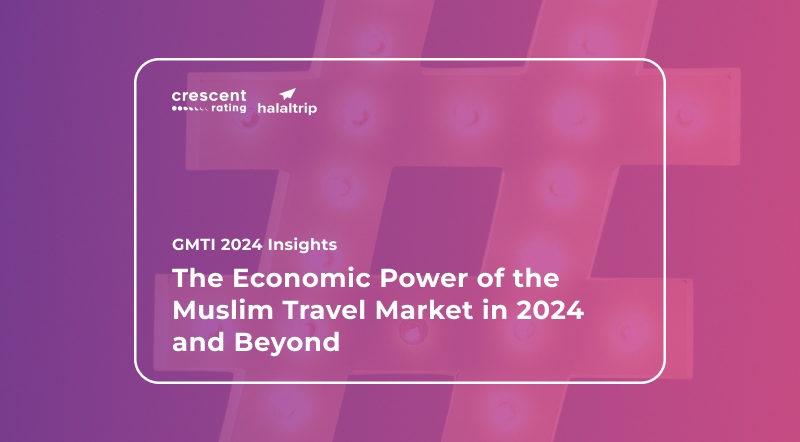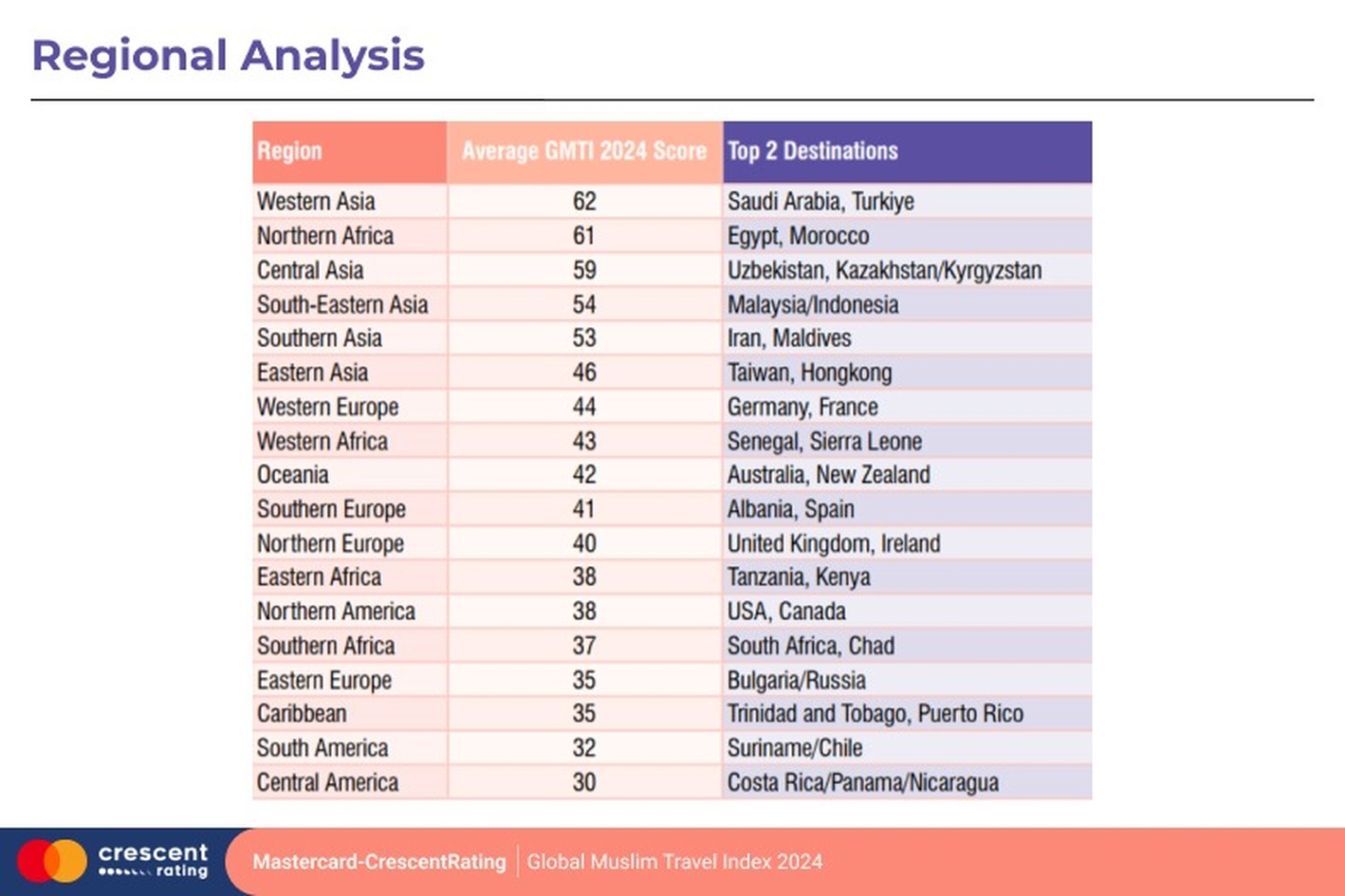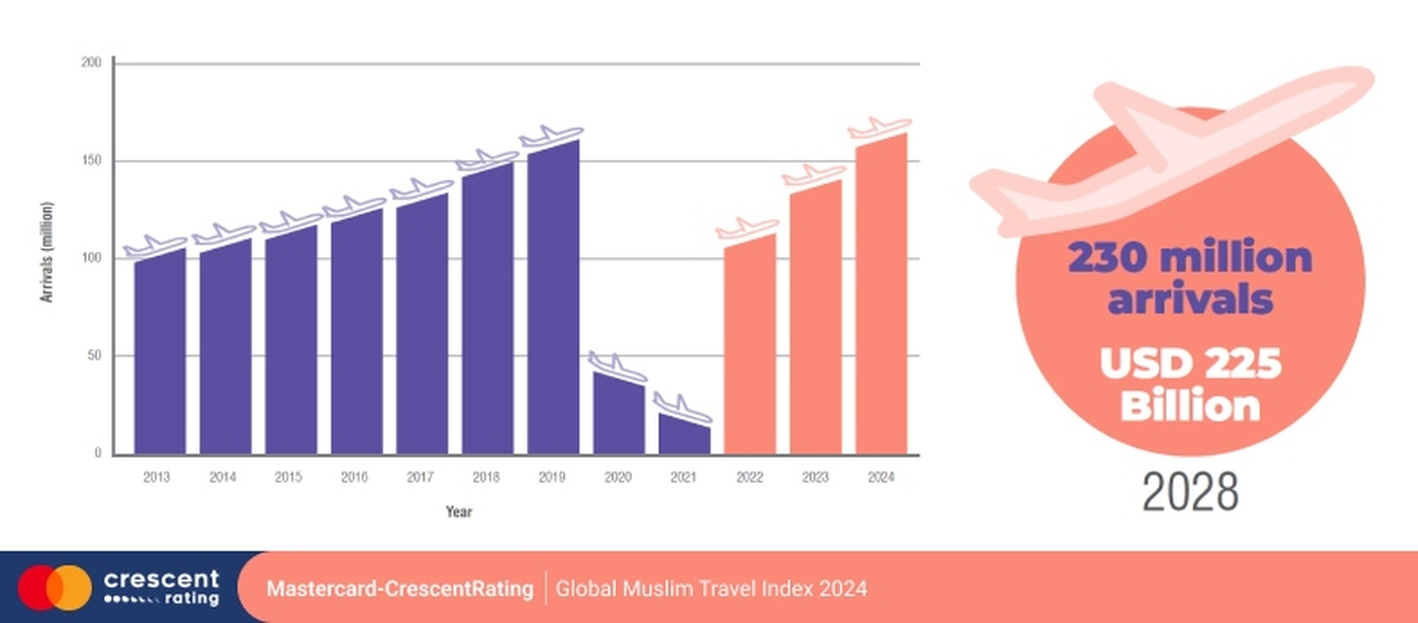
The Muslim traveler market is rapidly emerging as one of the most dynamic and impactful segments of global tourism. With over 1.9 billion Muslims worldwide, this demographic is reshaping how destinations prioritize their offerings to meet evolving demands. Insights from the Global Muslim Travel Index (GMTI) 2024 highlight the economic potential of this market, regional performance trends, and strategic initiatives by destinations like Hong Kong and Taiwan to attract and engage Muslim travelers effectively.
The Global Muslim Travel Index (GMTI) 2024 highlights significant regional performances, spotlighting leading destinations excelling in catering to Muslim travelers. These insights offer valuable benchmarks for stakeholders aiming to capture this lucrative market:

Non-OIC (Organization of Islamic Cooperation) destinations are starting to show significant progress in attracting Muslim tourists. They increasingly understand the importance of this market and its economic impact.
The progress of non-OIC destinations underscores the growing global recognition of the Muslim travel market's significance. By introducing tailored services such as Halal food options, prayer facilities, and inclusive hospitality, destinations like Hong Kong, Taiwan, Germany, France, the UK, and Ireland set benchmarks for adaptability and innovation. These efforts highlight the economic potential of catering to Muslim travelers while fostering a more inclusive travel landscape. As these rising stars continue enhancing their offerings, they exemplify how non-OIC destinations can thrive by embracing this evolving market segment.
Among non-OIC destinations, Hong Kong has emerged as a standout destination. Through its collaboration with CrescentRating, Hong Kong is making significant progress:
Similarly, Taiwan is also making strides to attract Muslim travelers. The country has introduced Halal-certified culinary tours and invested in culturally sensitive hospitality training for service providers, ensuring a warm and inclusive environment that reflects an understanding of the needs of Muslim travelers.

The Muslim travel market is on an impressive trajectory, with projections indicating it will reach $225 billion by 2028. This growth is driven by various trends highlighting Muslim travelers' evolving needs and preferences worldwide.
The rising influence of the Muslim Millennial and Gen Z generations is a significant contributor to this expansion. These young travelers are redefining travel norms, representing a large portion of the global Muslim population. They seek unique and enriching experiences that align with their faith, blending adventure and cultural exploration with religious values. Their demand for innovative and diverse travel options reshapes the industry and creates opportunities for destinations that match their preferences.
Technology is also playing a transformative role in this growth. Social media platforms, influencer campaigns, and mobile apps have become essential tools to connect Muslim travelers with halal-friendly services. From finding accommodation to exploring dining options, digital platforms simplify travel planning while building trust and increasing destination visibility. This digital revolution enables a more seamless and accessible travel experience, thus driving further engagement with the Muslim market.
Cultural sensitivity is a key driver of growth in the Muslim travel market. Destinations prioritizing Muslim-friendly practices, such as offering Halal-certified food, accessible worship facilities, and modest dress, have higher visitor satisfaction rates. These efforts enhance the travel experience and provide significant economic benefits by attracting a loyal tourism market segment that values inclusivity and respect for culture.
To fully capitalize on the economic potential of the Muslim travel market, destinations must adopt proactive strategies that address the unique needs of this growing segment. One effective approach is implementing the ACES Framework, which focuses on Access, Communication, Environment, and Services. By prioritizing these aspects, destinations can ensure a seamless and inclusive experience that meets the expectations of Muslim travelers.
Investing in infrastructure is another crucial step. Expanding the availability of Halal-certified dining options, accessible prayer facilities, and other Muslim-friendly amenities can significantly enhance a destination’s appeal. Destinations with well-developed infrastructure are better equipped to attract and retain Muslim visitors, creating a loyal customer base while fostering economic growth.
Collaboration with industry experts also plays a vital role. By partnering with trusted organizations like CrescentRating, destinations can gain tailored insights and strategies to understand the Muslim travel market better. These partnerships enable the development of innovative solutions and targeted initiatives that cater specifically to the preferences of Muslim travelers, ensuring long-term success in this dynamic market.
To help destinations capitalize on this dynamic market, CrescentRating and the Hong Kong Tourism Board are launching an ambitious initiative to empower industry players. This collaborative project will introduce new standards and practices, equipping destinations with the tools to meet the evolving expectations of Muslim travelers.
Stay tuned for updates on this groundbreaking initiative and be part of the movement shaping the future of Halal tourism. Don’t miss this chance to grow with us!